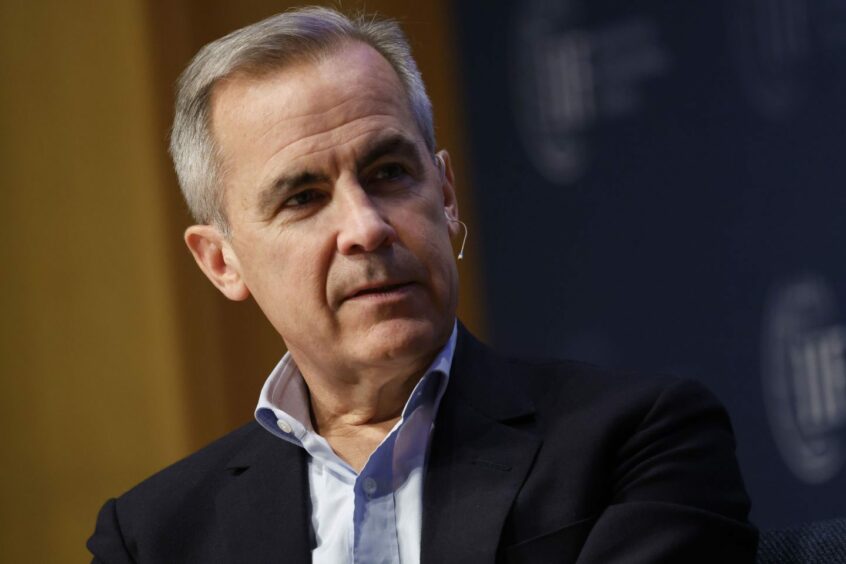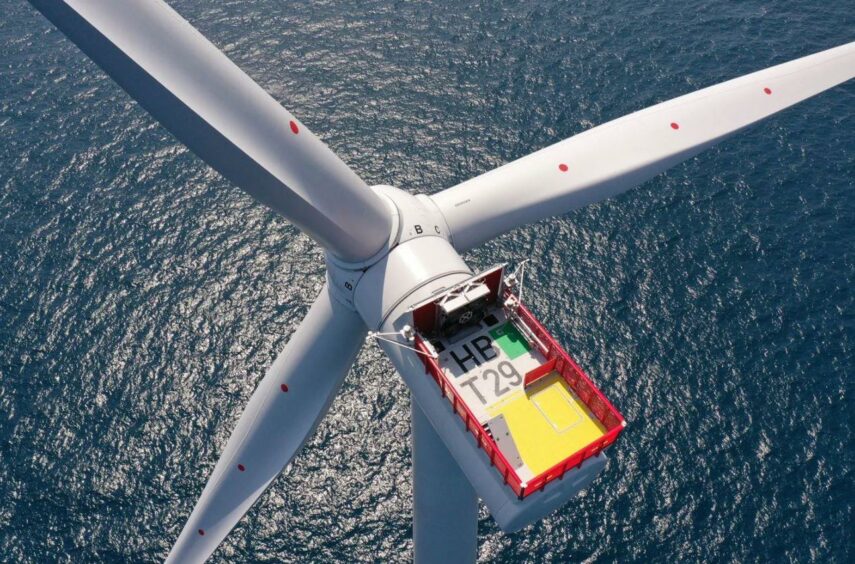
As banks redefine their net zero commitments, the cost of capital is rising, which could hamper decarbonisation efforts.
The UK’s market review of transition financing recommended new benchmarks for financing decarbonisation projects, but has been accused of a lack of clear “progress”.
Banks are withdrawing from the Net Zero Banking Alliance (NZBA), a United Nations group to align lending with net-zero goals, following pressure from regulators.
Morgan Stanley and JPMorgan left the net-zero alliance this month, following the recent withdrawal of other big banks including Citigroup, Wells Fargo, Bank of America and Goldman Sachs.
The mass exit of banks from a pivotal international climate alliance comes amid growing scrutiny of their commitments to environmental, social and governance pledges.
The Republican-led House judiciary committee wrote to 60 asset managers in December to ask them to justify what Republicans described as “woke” climate pledges.
In July, Republican committee chair Jim Jordan sent letters to key members of climate finance initiatives, including BlackRock and the Glasgow Financial Alliance for Net Zero, over what he described as the “potentially harmful effects” of a ‘coordinated’ agreement to decarbonise assets.
The NZBA operates alongside the Glasgow Financial Alliance, which is run by former Bank of England governor Mark Carney, the UN’s special envoy for climate action.
‘Messy’
“The energy transition – it is messy,” said Bruce Huber, chief executive of Alexa Capital, a London-based independent investment bank with an office in New York that focuses on energy infrastructure.
“In that post-pandemic period, we’ve had a whole bunch of energy transition funds raised under Article 9, which means that they’re prohibited from investing in anything but the low-carbon economy.”
In Huber’s view, the mass exit from the NZBA is “more about keeping the capital flowing into conventional energy groups”, especially across shale gas and liquefied natural gas (LNG).
He said as “Trump is pounding his fist”, the focus has shifted to energy security: “Everybody had to have a near-term, net-zero target and now we’re in a world where ESG has become such a dirty word for the investor community.”
He said funds “have had a harder time putting capital to work” as a result. According to some investors, he added, “ESG is just ‘noise’ in a capital market very focused on delivering unfettered investor returns”.
UK transition finance needs ‘aligning’
An independent market-led review into UK energy transition finance, commissioned by the government in 2023, found investment in the energy transition “needs to be made more attractive” to scale and support sustainability.
Transition finance is defined as financial products that “support higher emitting companies and activities to decarbonise over time”.
The Transition Finance Market Review report recommended that new benchmarks should be put in place for energy transition finance, and that companies should engage in “transition planning”, warning of “limited” provision for transition activities within sustainable finance.
“It is clear that to scale transition finance in support of a sustainable and resilient future, investment in transition needs to be made more attractive,” said Vanessa Havard-Williams, who chaired the market review.
“Many of the technologies needed for the transition already exist, but some need policy, incentives and catalytic capital to become commercially competitive.”
Financiers have accused the review of a lack of clarity. Huber said that “it’s not clear that it’s achieved much progress”, warning of a lack of alignment with “tools that work on a global basis achieving outcomes to accelerate capital flow”.
“I see the Transition Finance Market Review as a worthy initiative with a very ambitious goal that will be impossible to achieve because of the slowing of the pace of progress on the transition itself and lack of government support,” added Colin Welsch, a partner at SCF Partners – a private equity firm that invests in the energy transition.
“The UK oil service sector could have been part of the funding solution, but it is being strangled by windfall taxes – so that is no longer an option.”
Some of the world’s largest banks, including HSBC and BNP Paribas, have retrenched from financing fossil fuels in the past five years, setting climate targets on the path to net zero and decarbonisation.
Morgan Stanley, Citigroup, Wells Fargo, BoA and Goldman Sachs have also committed to net-zero targets, while JPMorgan describes its strategy as ‘net zero-aligned’. These banks still remain committed to net-zero targets despite withdrawing from NZBA.
“The ‘nuance’ in the current environment is that markets won’t comfortably support expensive or unproven decarbonisation technologies,” said Huber.
Traditional energy companies could struggle to secure finance for decarbonising activities as a result.
“Developing a new industry is not easy and that’s what we are doing now,” said BNP Paribas’ managing director for the low-carbon transition William Labat-Labourdette, while speaking at an energy transition summit in London in November.
He discussed the bank’s involvement in battery ventures in Europe, describing investing in the energy transition as “challenging”. BNP Paribas was an adviser to NorthVolt, an electric vehicle charging company that filed for bankruptcy in November, on a battery factory.
Capital costs
The cost of capital has increased due to inflation, following the energy crisis and Russia’s war on Ukraine – combined with a spike in interest rate shocks and the cost of equity – with energy projects among the most capital intensive. Net debt has also surged over time among oil majors due to slumps in the price of crude.
BP’s cost of debt and the comparatively lower returns on offer from renewables have deterred the British oil supermajor from investing large sums into low-carbon assets.
The oil company’s total finance debt increased in the first nine months of 2024 to $4.5bn. It has embarked on a cost-cutting exercise since the installment of new chief executive Murray Auchincloss, and carved out its offshore wind assets in December that involved reducing its investment in the sector.
BP’s North Sea boss Doris Reiter has called for “long-term fiscal stability” to continue investing in the UK market, adding that the government needs to put in place a fiscal regime “that enables” the transition to a low-carbon future.
British Gas parent company Centrica has also cited the high cost of capital as a reason for not deploying more money into solar.
“What’s really important here is that the cost of capital and the rate of returns will vary heavily between investors,” said Centrica chief executive Chris O’Shea in a recent interview. “While the spread on solar may look favourable to some investors at the moment, as an energy company, our cost of capital means that solar doesn’t pass our benchmark.”
Other financial intermediaries indicate that the appetite to invest in the UK’s energy transition remains relatively unhampered.
Huber described a “steady forward march” in financing developments, despite banks’ net-zero pledges.
He said the cost of capital of a North Sea developer “might not be the cost of capital of a terrestrial solar park” due to recent shocks in the capital markets, but added “there’s a widespread recognition that the lowest marginal cost of energy is coming from solar and from wind”.
Welch said most of the companies in SCF’s D2Zero portfolio “have been in existence for a long time and don’t have high debt levels, so typically we don’t have a problem raising debt finance.”
While infrastructure capital continues to flow towards the energy transition, investors in that space typically want assets de-risked by insurance wrappers, which they can hold for the long term.
According to a McKinsey Global Institute report from 2022, the global market opportunity for UK companies to support the energy transition was estimated to be at least £1 trillion by 2030.
‘Greenwashing’ risk
Transition finance has come into sharper relief as climate change is expected to increasingly impact economies.
The Office for Budget Responsibility (OBR) said in a recent report: “Climate change gives rise to a range of potential risks to economies around the globe, many of which developed under relatively stable and cooler conditions until the middle of the last century.”
The transition to net zero could “raise the stock of debt by around 20 per cent of GDP by 2050”, or 43% if efforts are delayed, the OBR said, based on an assumption that government intervenes early.
The EU is meanwhile expected to toughen up corporate sustainability reporting rules this month.
The transition finance market review warned of a “risk of actual greenwashing and risk of greenwashing allegations and reputational damage for providing finance to certain transition activities and transitioning entities”, particularly in high-emitting sectors.
However, a core plank of the energy transition has been the transition of traditional energy companies, such as state-owned Danish oil and gas producer DONG, which rebranded as offshore wind developer Orsted in 2017.
Denmark-based Orsted, now the world’s largest developer of offshore wind, successfully completed the sale of a 10% stake to Norwegian oil company Equinor last month, but has suspended dividends due to financial pressures.
Swedish energy company Vattenfall and GDF Suez have also transitioned to become renewables enterprises. GDF Suez also sold its oil and gas assets and became low-carbon energy provider Engie in 2015.
Transition finance, while potentially at risk of being used to facilitate greenwashing, may be overshadowed by sustainable finance criteria in EU legislation, unless there is clarity around which projects qualify for financing and ensure credibility.



